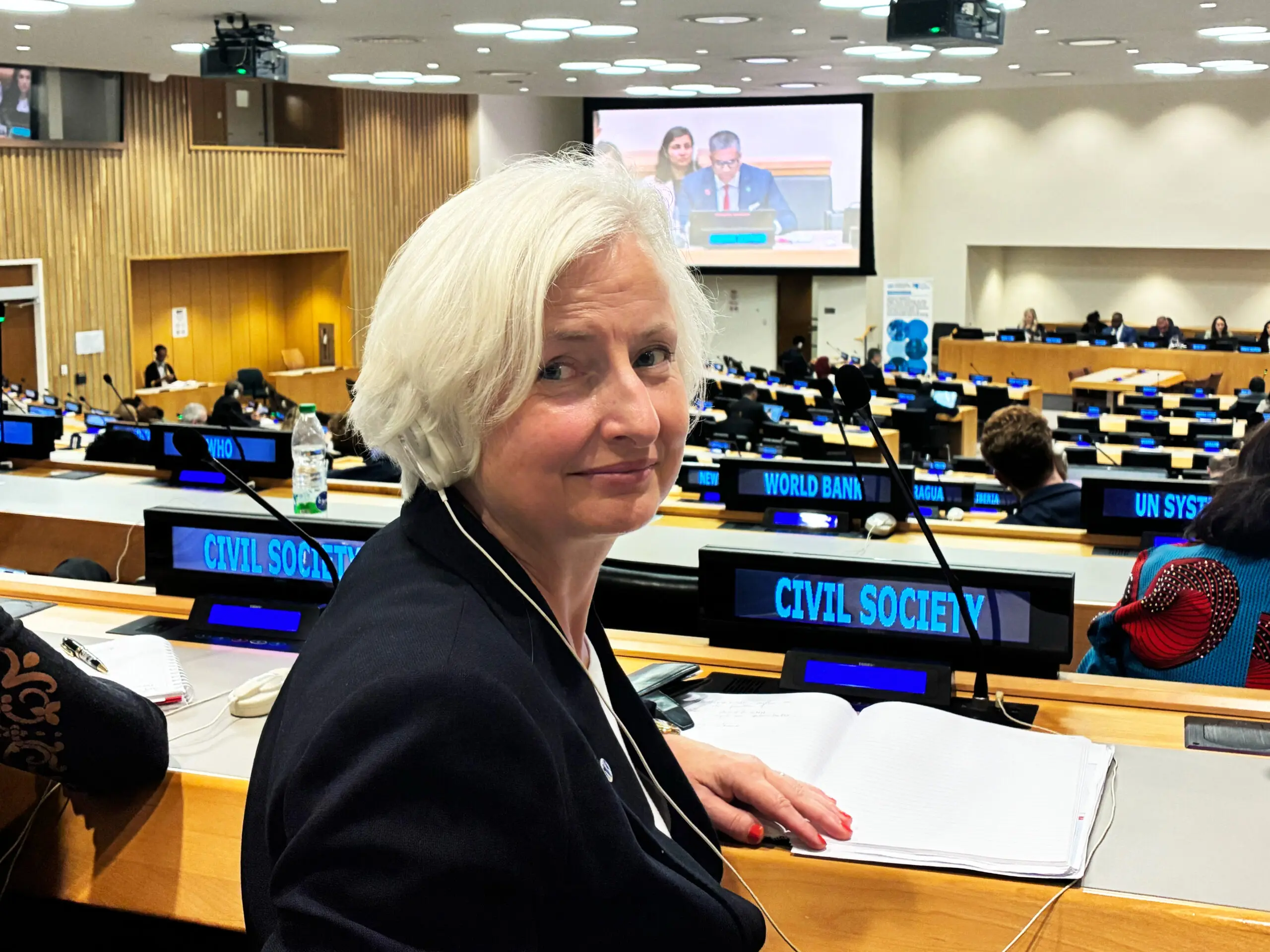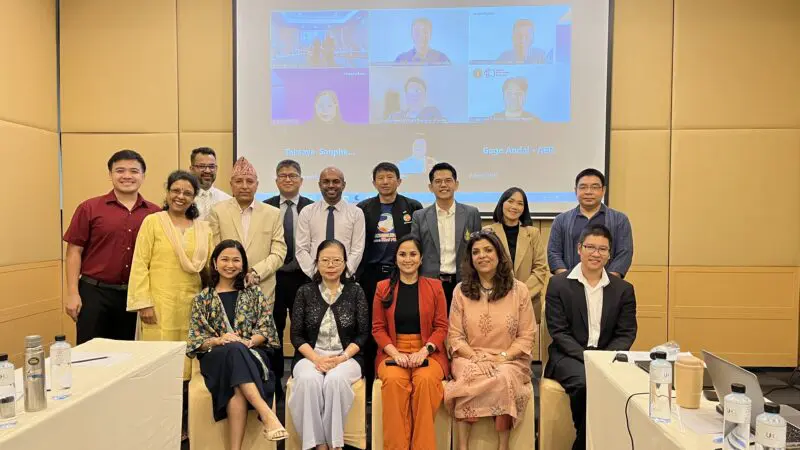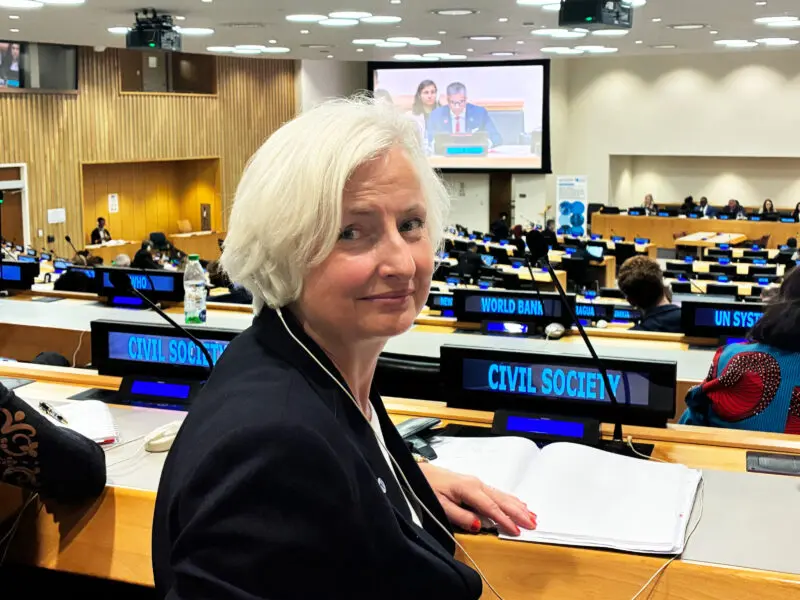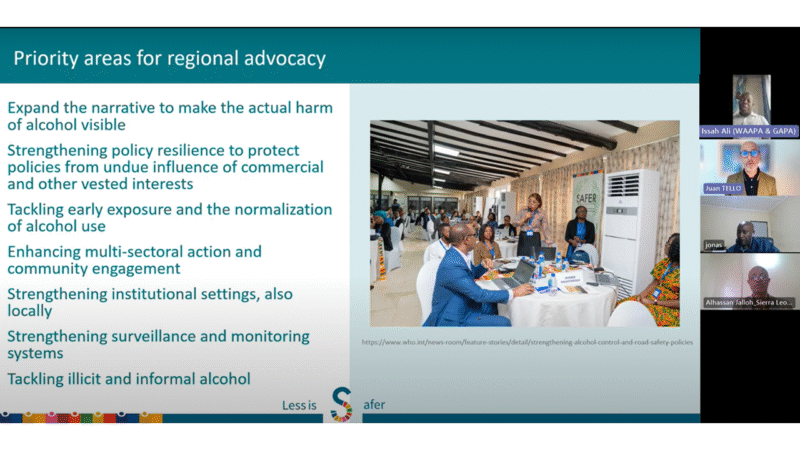«When harmful industries are allowed to influence policies and frameworks, it is global public health that loses,» says Ida Oleanna Hagen, Secretary General of FORUT, from New York.
She attended the UN High-Level Meeting on Non-Communicable Diseases (NCDs) on 25 September.
«The draft final declaration, which is the result after the high-level meeting, unfortunately, has significant weaknesses,» says Hagen.
It was also not adopted during the meeting since the US did not want to sign and rejected the declaration. The declaration has been forwarded to the agenda of the UN General Assembly.
FORUT’s policy asks
Ahead of and in meetings throughout the week, FORUT has had two issues:
- Mental health must be an integral part of strengthening health systems in low-income countries.
- Industries that are harmful to health, such as the alcohol industry, should not be allowed to influence health policy.
FORUT has had a good dialogue with Minister of International Development Åsmund Aukrust and the Norwegian delegation in New York. FORUT engaged the Ministry both in written inputs to the draft, as well as in meetings with Aukrust and his state secretary, Stine Renate Håheim, who both visited the FORUT Head Office in Gjøvik last August.

Commercial interests vs public health
«When more than 70 per cent of the world’s deaths are due to factors such as unhealthy diet, physical inactivity, smoking, air pollution and alcohol, the ambitions in the final declaration for the high-level meeting must be high and the measures concrete,» says Hagen.
Before the meeting, months of campaigns by civil society organisations had pushed for cost-effective and evidence-based measures and commitments. The alcohol industry lobbied member states intensively.
FORUT welcomes the key references in the Political Declaration for mental health, as well as the Global Strategy to Reduce Harmful Use of Alcohol, the Global Alcohol Action Plan, the recognition of the value of the WHO NCD Best Buys, and the recommendation for taxation of alcohol.
In the draft final declaration published in May, proposals were made for a tax increase on alcohol and restrictions on its accessibility and advertising. However, stronger proposals in earlier drafts of the Political Declaration were watered down. The World Health Organization (WHO) acknowledges in an article from Reuters that the process has been affected by intense lobbying pressure from the alcohol industry.
Disappointment in the final draft
The final result, which hopefully will be adopted by the general assembly later, is thus not as strong as FORUT and others from civil society had hoped.
«We would have liked a broader recognition of how commercial determinants affect health and non-communicable diseases,» says Hagen.
«We called for clearer language around conflict of interest when a whole-of-society approach is mentioned,» she added.
She also points out that it is worrying that the important role of civil society is not mentioned in the final declaration. «But in these times, we should be grateful that we have a UN, and the value of a joint declaration is something we should value. The Norwegian delegation did an impressive job, and Minister of International Development Åsmund Aukrust expressed the same disappointment in his speech.»
Critical to be present
Despite the limited impact, Hagen emphasised the importance of participating in the meeting.
«Being visible and contributing to the international processes is part of FORUT’s role. We will continue to raise awareness of mental health and the need for policies that prioritise public health over business interests. It is important to be able to create a safer world for children.»






